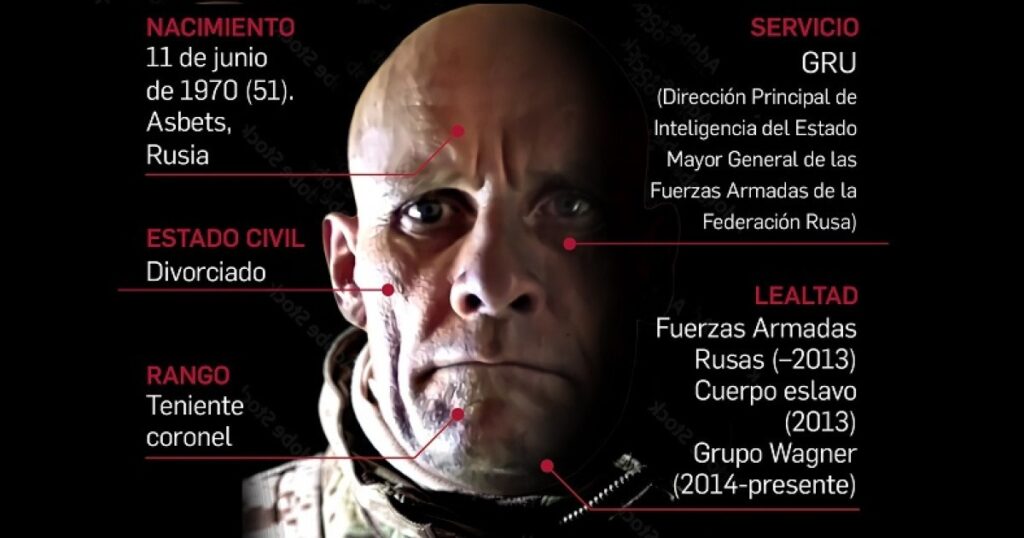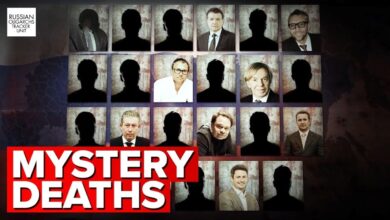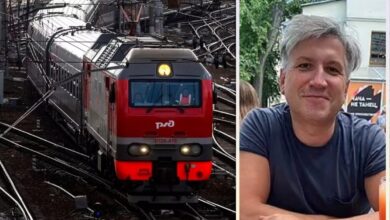Dmitry Utkin Fatal Flight: A Chapter Closes in Prigozhin’s Controversial Saga
Dmitry Utkin, aged 53, held a significant position as a leader within a private Russian military organisation and had served as a loyal subordinate to Yevgeny V. Prigozhin for many years. According to Russian officials, he lost his life in an aeroplane accident.
About Dmitry Utkin
Dmitry Utkin, who was born on June 11, 1970, and passed away on August 23, 2023, had forged his path in the role of a Russian military officer in the past. His journey had taken him to serve as a special forces operative within the GRU, where he held the esteemed position of lieutenant colonel. Notably, he had purportedly been one of the founders and the military leader of the Russian state-sponsored Wagner Group, assuming the alias Wagner for his covert operations.
Shockingly, Dmitry Utkin had been associated with neo-Nazi beliefs, operating in secrecy and rarely making public appearances. While Yevgeny Prigozhin had played the role of the public face and owner of the private military company, it had been Dmitry Utkin who had allegedly commanded its operations. In recognition of his unwavering service and actions, Dmitry Utkin had received four Orders of Courage from Russia.

However, tragedy struck on August 23, 2023, when a plane carrying Dmitry Utkin, Prigozhin, and eight others met with a fatal crash in Tver Oblast, leaving no survivors in its wake.
Early Life And Education
Dmitry Utkin’s journey had its origins in the small village of Asbest in Sverdlovsk Oblast, Russia, within the Soviet Union, where he entered the world on June 11, 1970. In his early years, his parents were together, but their paths diverged when his mother, a civil engineer, decided to pursue a different path.
Following this separation, Dmitry Utkin and his mother embarked on a new chapter, relocating to the picturesque village of Smoline in Kirovohrad Oblast, Soviet Ukraine. It was in this charming Ukrainian setting that he spent his formative years, during which his peers noticed his diligent nature, although it was also marked by a touch of self-assurance. In Smoline, Dmitry Utkin also became a father, taking on added responsibilities.
As he transitioned into adulthood, Utkin made the decision to further his education. His journey led him to the vibrant city of Leningrad, now known as Saint Petersburg, where he enrolled in the S. M. Kirov Higher Combined Arms Command School. It was during this period that he discovered his true calling, joining the ranks of the elite GRU Special Forces.
In the tapestry of his personal life, Dmitry Utkin’s romantic endeavours led to his marriage to Elena Shcherbinina in the 1990s. Together, they welcomed three children into the world. However, as the early 2000s unfolded, their love story took a different turn, resulting in their separation and eventual divorce.
Interestingly, Utkin’s life took more unexpected turns. In 2015, his ex-wife, Elena Shcherbinina, made a surprising appearance on a television programme, reporting Dmitry Utkin as missing, adding a mysterious layer to his already enigmatic life story.
Utkin Link to Wagner Group
Utkin’s connections to the Wagner organisation can be traced back to its establishment in 2014. Before that, he had a background in Russian military intelligence and had served as a veteran in both Chechen wars. While he played a role in Wagner’s activities in Ukraine starting in 2014, coinciding with Russia’s annexation of Crimea, and once again during Vladimir Putin’s invasion in the previous year, Utkin also has substantial ties to the group’s operations in Africa and Syria.
As Putin endeavors to garner support for his war in Ukraine, a network of paramilitary mercenaries known as the Wagner Group is bolstering his influence in resource-rich central Africa, which is over 5,000 kilometers away.
Navvar Şaban, a military and security expert from the Omran Centre for Strategic Studies, a think tank focused on Syrian affairs, highlights that the Wagner Group has a extensive history of human rights abuses in Syria.
“The problem is, it was difficult to point out this because they had a strict media policy where fighters were not allowed to take pictures of their operations,” he says.
Mr Şaban says the group actively tried to recruit war criminals who “just wanted to kill”.
He says the video of Mr Bouta’s murder told us a lot about Utkin and Wagner.
“This was an individual act, but they are individuals from a larger network of these kinds of individuals,” he says.
“Imagine if hundreds of these people get inside a village.”
The Kremlin claimed on Sunday that it had identified all 10 victims of last week’s crash using DNA from their bodies.
The plane crash came two months to the day after Prigozhin’s frustrations with Russian army chiefs boiled over, and he ordered Wager mercenaries to march on Moscow.
While the troops eventually turned around, Mr. Putin described Prigozhin as a “traitor”, leading many to believe the oligarch and his supporters were marked men.
In February, a video of Utzin and Prigozhin speaking to a Russian military blogger appeared on the encrypted messaging service Telegram.
Utkin can be heard saying:
“Death is not the end, just the beginning of something else.”
“We will all go to hell, but in hell we will be the best,” Progozhin adds.
On July 19, a video of the pair addressing a swathe of Wagner soldiers after Mr. Putin ordered the group to be disbanded was posted to the same platform.
“This is not the end, this is only the beginning of the greatest work in the world, which will continue very soon,” Utkin says to a cheering crowd, before adding: “And welcome to hell.”
At the time it was posted, he had just five weeks to live.
Utkin’s Death Story

Utkin tragically lost his life in an airplane accident that occurred on August 23, 2023. This devastating incident claimed the lives of nine other individuals, among them Yevgeny Prigozhin, the leader of the Wagner Group.[47][48] Utkin’s final resting place became the Federal Military Memorial Cemetery in Moscow Oblast, where he was laid to rest on August 31.
Background of Death
According to The Washington Post, which cited geolocated videos, the aircraft was travelling from Moscow’s Sheremetyevo International Airport to St. Petersburg when it crashed about one mile south of the Russian community known as Kuzhenkino. Kuzhenkino is situated approximately 200 miles northwest of Moscow.
Based on flight data, it appears that the Embraer Legacy jet crashed on Wednesday afternoon. According to Flightradar24, a real-time aviation data service, they began receiving data from the aircraft at 5:46 p.m. local time, and this data transmission continued until 6:20 p.m.
Flightradar24 analyzed the data sent by the aircraft prior to the crash, which revealed that at 6:19 p.m., the plane with the registration RA-02795 rapidly ascended and descended multiple times before ultimately crashing. This unusual flight pattern has led aviation experts to suggest that the pilot may have lost control of the aircraft for some reason. Ross Aimer, a retired United Airlines pilot and CEO of Aero Consulting Experts, explained that such zigzagging movements in the air are not typical, indicating a potential loss of control.
Investigations are currently underway in Russia to determine the cause of the crash.
Eyewitnesses who spoke to Russian media reported hearing two loud explosions before the plane plummeted from the sky and crashed into a field, erupting into flames. Images from the scene showed that on Thursday, parts of the jet, including what appeared to be its tail, were located more than a mile away from the primary crash site.
According to sources familiar with the preliminary assessment, U.S. intelligence officials are considering the possibility that the plane may have crashed due to an onboard explosion. Officials who discussed the preliminary assessment on the condition of anonymity, however, stated that there is currently no evidence that a missile brought down the jet.
Other mysterious Russian deaths or attacks surrounding Putin
Boris Nemtsov
In 2015, Boris Nemtsov, a prominent Russian opposition figure known for his strong criticism of the Putin administration, was fatally shot in an assault that took place on a bridge within sight of the Kremlin.
- He met his demise just a few days prior to his scheduled leadership of an uncommon public demonstration against Russia’s takeover of Ukraine’s Crimean area and its backing of separatist activities in eastern Ukraine’s Donbas region.
- The Kremlin disavowed any participation, while in 2017, a Russian court found five individuals guilty of Nemtsov’s murder in a trial that his family labeled as an attempt to conceal the truth.
- In the years that followed, it came to light that a government agent working with a group that carried out assassinations had been closely watching him in the months before his death.
Alexei Navalny
The leader of the opposition, Navalny, who is currently incarcerated for approximately three decades, was poisoned in August 2020 using a potent nerve agent known as Novichok, a product of Soviet Union’s research and development.
- The Kremlin claimed no responsibility, but later inquiries conducted by Bellingcat revealed that the individuals behind the assault were affiliated with Russia’s Federal Security Service (FSB) and that the decision to poison him had come from the highest levels of the Kremlin.
Alexander Litvinenko:
In 2006, Litvinenko, a former KGB agent turned whistleblower, passed away in the United Kingdom as a result of poisoning with a scarce and extremely radioactive substance known as polonium-210.
- Once more, Russia has refused any participation, yet both the United Kingdom and the European Court of Human Rights have reached the determination that Russia likely played a role. The UK investigation even went as far as suggesting that Putin “likely sanctioned” the assassination of Litvinenko.
- One of the indications suggesting the Kremlin’s participation is the observation that nearly all the global supply of polonium-210 originates from state-managed nuclear facilities in Russia, where nuclear authorities have emphasized strict oversight over access to this element.
Sergei Skripal:
In 2018, Skripal, a former Russian intelligence operative residing in the United Kingdom, along with his daughter, fell victim to an assault in Salisbury. They were targeted with a nerve agent that bore a resemblance to the substance employed in the attack against Navalny.
- Skripal and his daughter managed to survive, but a British citizen lost their life, and several others were harmed when they encountered a perfume container suspected to be linked to the incident.
- The United States, the United Kingdom, and several other countries have jointly determined that individuals affiliated with the Russian military intelligence agency were responsible for the poisonings. Furthermore, the United Kingdom has formally accused three members of this agency in connection with the incidents.
Yuri Shchekochikhin:
In July 2003, Russian investigative journalist and liberal lawmaker Shchekochikhin experienced a sudden illness and passed away. Doctors at a hospital associated with the Kremlin stated at the time that his cause of death was attributed to a severe allergic reaction.
- His family members have reported that Shchekochikhin endured a harrowing 12-day period characterized by excruciating pain, during which his skin progressively peeled off, his hair fell out, and his organs suffered successive failures.
- When they requested access to Shchekochikhin’s medical records, medical professionals informed his family that these documents were being held by prosecutors, citing them as a “medical secret.” This was in relation to an investigation that would not be initiated until several years later.
- In the years leading up to his demise, Shchekochikhin had published investigative reports exposing a smuggling operation, money laundering activities, and a corruption scandal involving high-ranking FSB (Federal Security Service) agents.
- Additionally, he had been delving into the potential involvement of the FSB in the 1999 Moscow apartment bombings, an event that played a part in triggering the Second Chechen War.
Anna Politkovskaya
In October 2006, Anna Politkovskaya, a Russian journalist and advocate for human rights, was fatally shot in her residence located in Moscow.
- She had documented human rights abuses during the Second Chechen War and authored a book in 2004, asserting that Putin, via the FSB, was suppressing civil liberties to steer the nation toward a Soviet-style dictatorship before she passed away.
- In 2014, a Moscow court convicted five men for her murder, but the identity of the individual who ordered her assassination was never determined.
Multiple Russian oligarchs and executives also died :
According to a report from The New York Times, a number of prominent Russian oligarchs and high-ranking executives have met untimely deaths in perplexing circumstances, including suicides and accidents, since the commencement of Russia’s invasion of Ukraine.
- Ravil Maganov, who held the position of Chairman of the Board at Lukoil, a prominent Russian conglomerate, experienced a tragic and unexpected demise in September 2022. This unfortunate incident occurred when he fell from a hospital window in Moscow. The circumstances surrounding his death garnered significant attention and controversy in Russia and beyond.
- Russian media initially reported that Ravil Maganov had taken his own life, implying that it was a case of suicide. However, in response to these reports, Lukoil released an official statement following his passing. According to the company’s statement, Maganov did not succumb to suicide but rather passed away as a result of a severe illness.
The sudden and perplexing nature of Maganov’s death, along with the contrasting narratives presented by the media and Lukoil, added an extra layer of complexity to this tragic event. It raised questions and speculation within both the business community and the public, leaving many seeking further information and clarity about the circumstances surrounding the loss of a key figure in one of Russia’s largest private corporations.
Mysterious Deaths Among Russian Elites Amid Ukraine Conflict
Wagner Group Leader Yevgeny Prigozhin’s Recent Death Sparks Concern
Yevgeny Prigozhin’s Tragic Plane Crash:
Yevgeny Prigozhin, the leader of the Wagner Group, met a tragic end in a plane crash while traveling between Moscow and Saint Petersburg. His death came shortly after a mutiny by his mercenaries in June, which strained his relationship with President Putin.
Speculation Surrounding Prigozhin’s Death:
Many speculate that Prigozhin’s death might be a political assassination, signaling a warning to Russia’s elites ahead of the 2024 elections. Ukrainian presidential aide Mykhailo Podolyak shares this sentiment.
Putin’s Response:
President Putin offered condolences and acknowledged Prigozhin’s contribution to fighting in Ukraine. He described Prigozhin as a complex figure with both achievements and mistakes. Several Russian elites have died under mysterious circumstances in the past year, raising concerns and conspiracy theories.
Deaths in Early 2022:
The string of unusual deaths began in early 2022, just before Putin’s invasion of Ukraine. Notable figures like Leonid Shulman, Alexander Tyulakov, Igor Nosov, and Mikhail Watford were among those who passed away.
Bizarre Deaths:
Some deaths took on bizarre and perplexing forms, such as Vasily Melnikov’s family stabbing and Vladislav Avayev’s murder-suicide. Alexander Subbotin’s death, involving a shaman and Jamaican voodoo rituals, stood out as particularly unusual.
Continued Deaths:
The pattern of elite deaths persisted into late 2022, with Pavel Antonov’s fatal fall from a hotel window in India. Several of these individuals had voiced criticism of Putin’s actions in Ukraine.
Despite these puzzling incidents, there is no clear and definitive explanation for these deaths. Many have noted the connection between the outspokenness of these elites and their unfortunate fates.
The death of Yevgeny Prigozhin, along with the string of mysterious deaths among Russian elites, remains a topic of intrigue and speculation, leaving many questions unanswered about the circumstances surrounding these individuals’ demises.








